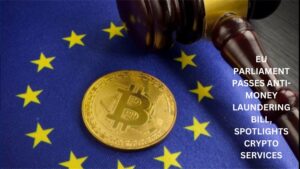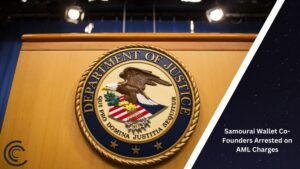Key Takeaways:
- Elon Musk said his $44 billion acquisition plan of Twitter Inc. TWTR -9.67 percent was “temporarily on hold” due to concerns over phony accounts, a surprising twist that surprised investors and prompted doubts about his commitment to complete the deal.
- Musk, the world’s richest man and a free speech absolutist, has stated that removing “spam bots” from the site would be one of his top goals. A request for comment from Twitter was not immediately returned. Mr. Musk’s team and Tesla Inc were unavailable for comment at the time of publication.
- In a tweet, the Tesla billionaire connected to a Reuters piece dated May 2 quoting a Twitter financial filing that indicated fraudulent or spam accounts accounted for less than 5% of the company’s “monetizable daily active users” in the first quarter.
Elon Musk, the billionaire founder of Tesla, has put his plan to acquire Twitter on “pause,” creating further concerns about whether he’ll go through with the $44 billion deal.
Musk, who stressed that he was still dedicated to the deal, agreed to buy Twitter on April 25 and waived due diligence in order to convince the San Francisco-based company to accept his “best and last offer.”
In premarket trade, Twitter shares dropped more than 20%, but recovered after Tesla CEO Elon Musk made a second tweet claiming he was still committed to the deal. The stock fell 12% in strong volume before the market opened, as investors worried about the takeover.
Musk agreed to buy Twitter on April 25 and waived due diligence in order to convince the San Francisco-based company to approve his “best and last offer” of $54.20 per share.
Investor concerns about inflation and a projected economic slowdown have caused technology stocks to plummet since then.
Twitter CEO Parag Agrawal stated on Friday that “while I expect the deal to close, we need to be prepared for all scenarios,” a day after announcing a hiring freeze and cost cuts internally.
Musk said on Twitter early Friday that he managed to figure out how many spam and fraudulent accounts there were on the social media network. He’s been outspoken about his intention to tidy up Twitter’s problem with “spam bots” that imitate actual people, and he seems to ponder if they were being underreported.
Musk mentioned the bogus account data in a Reuters piece from 10 days earlier. The statistics were an estimate, according to Twitter, and the true number might be higher.
As investors worried that the slump would drive Musk to walk or seek a lower price, the difference between the offer price and the value of Twitter shares had increased in recent days, signifying less than a 50% chance of completion.
Musk mentioned the bogus account data in a Reuters piece from 10 days earlier. The statistics were an estimate, according to Twitter, and the true number might be higher.
According to regulatory filings from Twitter, the estimate of the number of spam accounts on the microblogging site has remained below 5% since 2013, prompting some analysts to question why Musk was upping it now.
Musk announced a stake in Twitter on April 4 despite fears that as Tesla’s CEO, he may become distracted and may have to sell more Tesla shares to fund the transaction. There is plenty of precedent for a possible price renegotiation after a market downturn. When the COVID-19 epidemic struck in 2020, several firms renegotiated agreed-upon acquisitions, causing a global economic crisis.
Musk seemed to be using the number of spam accounts as a pretence to walk out of the agreement, according to Sara Silver, a professor of business media and financial communication at Quinnipiac University.
“It’s not plausible to imply that this is the reason he’s putting the agreement on hold,” Silver added. “For him, this isn’t a new problem. It’s not just coming into his mind now.
If Musk does not close a deal, he is contractually compelled to pay Twitter a $1 billion break-up fee, and the language in the deal contract tends to limit any penalties that Twitter can seek from Musk to that amount.
However, the contract includes a “particular performance” language that a judge may use to compel Musk to finish the transaction.
Musk had originally agreed to borrow $12.5 billion using Tesla stock as collateral. He plans to borrow an additional $13 billion from banks and put up $21 billion in Tesla stock that will be sold to banks in exchange for cash once the deal is completed.
Musk claimed last week that he had received over $7 billion in commitments from investors, reducing the number of Tesla shares he would have to put as collateral.
Musk is Unpredictable and has Always Been:
Musk’s remarks criticising Twitter and its acquisition would not be the first time his views on the social media network have sparked debate or caused him trouble.
According to papers obtained by The Wall Street Journal in 2021, “Securities authorities notified Tesla Inc. last year that Chief Executive Elon Musk’s use of Twitter had twice breached a court-ordered guideline requiring his tweets to be pre approved by company lawyers.”
It is important to remember that Bitcoin fell to a three-month low as investors sold cryptocurrencies in response to Elon Musk’s weekend indication that Tesla is considering selling or may have already sold some of its Bitcoin holdings.
Musk’s passionate support for cryptocurrency has recently buoyed crypto markets. However, he has recently roiled the market by appearing to be chilly on Bitcoin in favour of dogecoin, its one-time spoof. Even the most hardened traders are becoming alarmed by the gyrations.
Elon Musk is renowned for his viral and unusual tweets, which have previously affected the cryptocurrency territory. He was the driving force behind the creation of Dogecoin, and then he was back with a fresh tweet affecting Bitcoin’s price. Bitcoin’s value has increased by 2.1 percent in just three hours, owing to Tesla CEO Elon Musk.











